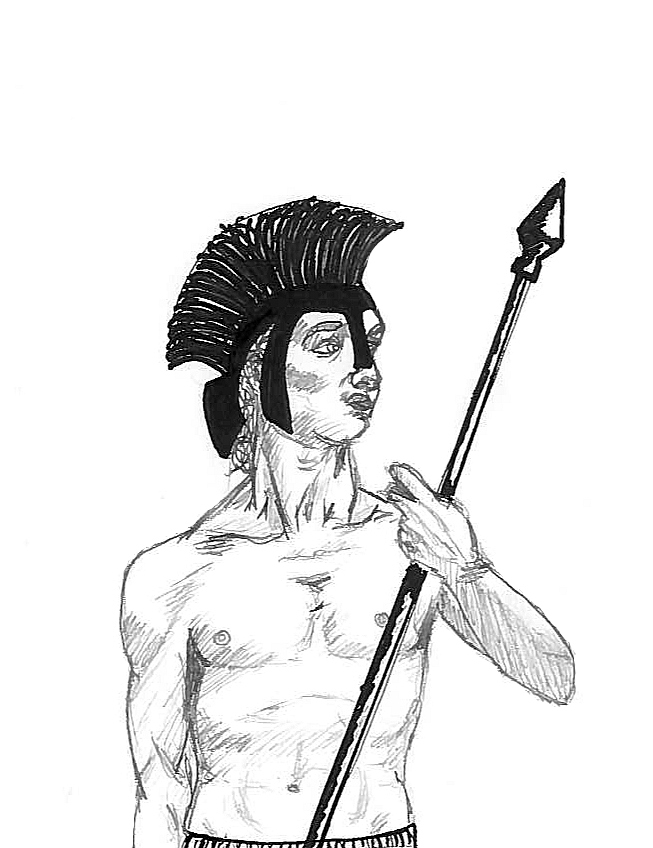How can one make a modern-day audience hang on every word of a three-thousand-year-old story? An Iliad, a one-man show directed by the McGill Classics department’s Lynn Kozak and produced by Chocolate Moose Theatre, proves that remakes of classic texts can be executed in both a skillful and entertaining way.
The play takes the form of a story told by one man, the Poet, who is played by Martin Law, co-founder of Chocolate Moose. This man’s identity and origin, however, are secondary to the story he has to share. It’s a familiar tale: The story of how the Greek warrior Achilles slayed the Trojan warrior Hector. But the Poet’s monologue is not a simple retelling of the classic tale. Although he appears to the audience as a modern-day man, he was there during the war, where he saw and felt its horrors. Through his monologue, the audience sees and feels this turmoil as well.
The story is interwoven with references to today’s world. After three thousand years, the memories of the conflict’s tragedies are still fresh in his mind; he sees them repeated throughout time in the wars humans continue to fight. The ubiquitousness of war is a theme in the production and one of the reasons the Iliad still resonates with audiences. Though Homer’s story is most remembered gorey and graphic descriptions of battle, An Iliad shows that there is much more to the narrative than this.
“It’s a story about grief, rage, emotions related to death,” said Law.
Throughout the production the Poet takes the audience inside the minds of the characters: Battle-crazed warriors, angry gods, and grief-stricken loved ones. He tells a story of honourable men on both sides, clashing against each other for deeply personal reasons. The Poet makes the audience understand the motivations of the characters.
“Being able to break the fourth wall is fantastic,” said Law. “There’s more storytelling when I can look at someone right in the eye and say, ‘You, yes, you, sitting there, this is what I’m telling you,’ in a way that almost gives you an acting partner, someone to feed off of.”
Law offered his own insight into why people everywhere relate to An Iliad. He discussed grief in the Bible and in the classical tradition.
“In the Biblical tradition, it’s dealt with, but there’s an answer for all of death, and it’s the will of God,” he said. “For the Greeks, the will of Zeus, the will of many gods, capricious gods, is much closer to some of the real things that people feel.”
In his role as The Poet, Law attempts to tell this classic story of intense grief as naturally as possible in order to make it resonate with modern audiences.
“As an actor, the easiest thing Lynn [Kozak] did for me was just to say, ‘Look, put it in your own voice,’” Law said. “That was the best way just to make all the text sort of pop.”
The audience is compelled to get angry with Achilles at the loss of his dear friend and to weep with Hector’s wife at the news of his death. An Iliad is an acutely emotional experience, filled with grief and rage, love and suffering. Through the Poet’s monologue, the epic poem becomes universal to human experience.








